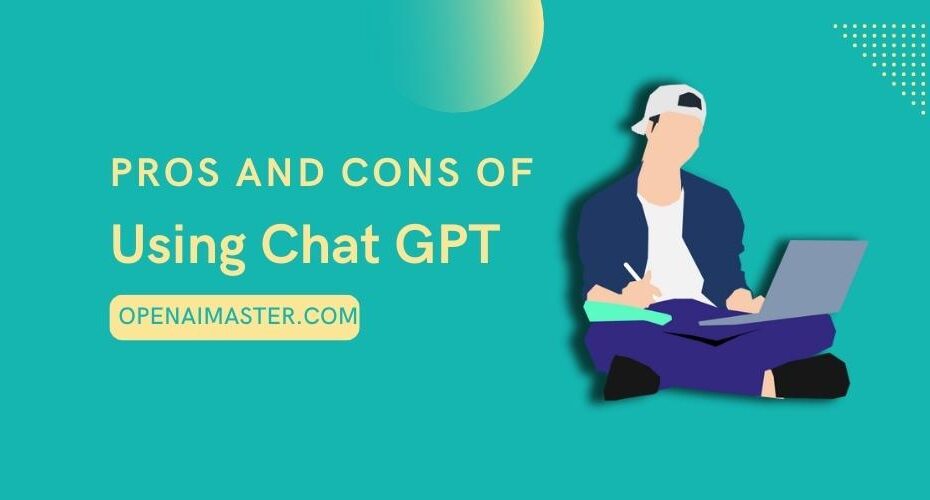The launch of ChatGPT by AI lab OpenAI has unleashed both enthusiasm and apprehension worldwide. This advanced natural language model can fluently generate essays, emails, code and even converse like a human. However, as a nascent technology based on detecting patterns, ChatGPT also poses disconcerting risks around misinformation, bias and job loss.
As an AI practitioner focused on responsible innovation, I aim to provide expert analysis of ChatGPT that highlights strategies for maximizing widespread benefits while proactively addressing ethical downsides. This framework is essential as rapid adoption across industries seems imminent.
Understanding What Powers ChatGPT
Let‘s dive deeper into the key techniques that enable ChatGPT’s impressive linguistic abilities. The model belongs to a class known as large language models (LLMs), built using deep learning on vast datasets.
As AI researcher Melanie Mitchell explains, "The key technique involves training the model on so much text — such as emails, Wikipedia entries and online books — that it learns relationships between words, sentences, concepts, questions and answers."
Specifically, ChatGPT fine-tunes an earlier LLM called GPT-3, which contains 175 billion parameters! This foundational model was trained on 570GB of text from diverse online sources. ChatGPT then undergoes additional training through human feedback on its responses to refine performance.
This massive scale enables ChatGPT to generate surprisingly coherent completions for text prompts. However, as we‘ll explore next, it also opens the door for concerning biases and inaccuracies.
Balancing the Pros and Cons
ChatGPT brings immense promise to augment human productivity and creativity. But unrestrained rollout also jeopardizes rights and opportunities for marginalized groups. Here I outline key upside areas and risks that responsible policies must balance:
Accelerating Content Creation
Upside: ChatGPT empowers anyone to generate polished, customized content at scale. Marketers, educators, lawyers and other professionals can save hours crafting high-quality emails, reports, posts and other materials. This promises huge productivity gains industry-wide.
Risks: However, Anchor AI co-founder Daniel Ziegler notes we must ensure attribution so ChatGPT doesn’t plagiarize from existing works or falsely portray AI content as human-generated. Strict guidelines are vital.
Democratizing Access to Cutting-Edge AI
Upside: Simple interfaces like ChatGPT, DALL-E and GitHub Copilot enable anyone to leverage advanced AI, spurring grassroots innovation. Former programmer and parent Amanda Daflos remarks: “Now people like me can benefit without coding expertise or computing resources.”
Risks: However, the profit incentives of private companies developing these models don‘t guarantee responsible design or use. Public discussions on governance, akin to policies on ethics in genetics, are pressing as adoption spreads.
Automating Customer Service and Manual Work
Upside: ChatGPT could save substantial labor costs by automating repetitive tasks in customer service, contract analysis or report generation. Software engineers surveyed by TechTalks estimate a 10-30% reduction in coding work possible. As OpenAI CEO Sam Altman notes, lower-skilled writing jobs are especially vulnerable to displacement by human-like AI.
Risks: However, researchers Emily Bender and Timnit Gebru argue we cannot forfeit human accountability in systems that directly impact people’s opportunities or rights. Areas like hiring, financial services, healthcare and education demand ongoing human oversight over AI tools, even assistive ones.
Propagating Misinformation and Toxic Content
Risks: A major downside is ChatGPT’s potential to spread false information or offensive speech. Without a faculty for verifying facts, it predicts probable text that seems convincing but could be logically or ethically unsound. Cornel West notably exposed ChatGPT generating both brilliant philosophical prose alongside disturbing racist dialog.
Solutions: To address this, researchers like salesforce’s Peter Henderson are testing techniques that allow AI models to indicate when they are unsure or talking nonsense. More transparent uncertainty estimates would enable safer deployment. Ongoing audits to uncover harmful biases are also vital as chatbots interact widely.
Policy Priorities for Responsible Innovation
Guiding cutting-edge inventions like ChatGPT toward positive impact and minimizing risks mandates conscientious governance. Here I outline key priorities for policymakers and leaders to enable responsible innovation:
Institute Stronger Legal Protections: Update outdated regulations to safeguard rights like attribution for original creators and data/identity protection for consumers engaging AI systems.
Prioritize Algorithmic Fairness: Governments must fund regular external audits of AI models for discrimination against protected groups before enterprise adoption. Achieving equal access and treatment should be table stakes.
Incentivize Ethical Technology: Grants or tax credits for startups focused on AI safety and beneficial innovation can spur entrepreneurship targeting urgent issues like misinformation or job loss.
Promote AI Literacy: Major public education campaigns on how AI technologies work, their limitations and societal context will lead to wiser use by everyday citizens.
The possibilities with ChatGPT are undoubtedly thrilling. But as with past breakthroughs like social media, oversight lagged impact, with regrettable consequences. By proactively embedding ethics into research and implementation of such influential inventions, we can instead realize their promise to transform lives for the better.
The path forward lies in vigorously fostering innovation while also guiding it toward empowerment over exploitation through compassionate policy. If we strive judiciously to amplify benefits over harms, advanced AI could profoundly expand what it means to be human.
